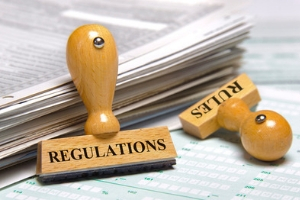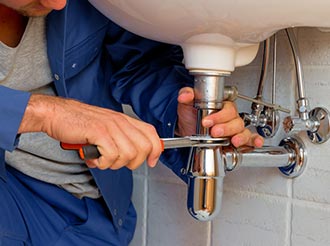
Think back to your first apartment or rental home-- away from your family, and possibly without roommates--wasn’t it EXCITING? Quite often you may have found yourself in an uncomfortable position because there were plumbing emergencies, electrical issues, or heating problems with your new abode.
Did you know that technically the landlord was supposed to pay for it? Probably not. No one really talks about the fact that the landlord is obligated to make sure that their property is in a livable condition. We are going to examine what a landlord is supposed to pay for and why no one is talking about it! Keep reading for more information!
The Landlord’s Responsibility
 The law is basically set up so that the tenant has an ‘inhabitable’ place to live.
The law is basically set up so that the tenant has an ‘inhabitable’ place to live.
If your place isn’t livable due to flooding from a burst pipe, mold growing from moisture, or other plumbing problems, you have a right to have it repaired.
This does not mean they are responsible for damages about repairs they knew nothing about--basically, if you notice something is broken, let them know. Keep letting them know until it is fixed.
The Benefit of Renting
 When you purchase a home, you have the satisfaction of knowing it's yours, accruing equity, and potentially having a lower note than you would pay in rent.
When you purchase a home, you have the satisfaction of knowing it's yours, accruing equity, and potentially having a lower note than you would pay in rent.
However, you also have all of the problems that come with owning a home. This can include burst pipes and flooding, clogged toilets, or a broken water heater.
With renting, you may not have the benefit of equity or own a home in the end, but you won’t have to worry about what happens if a major plumbing problem would occur.
The Local Ordinances
 Your biggest advocate for fair treatment from landlords is yourself! Taking the time to get to know the laws surrounding leasing agreements will serve you well and help prevent you from making costly mistakes.
Your biggest advocate for fair treatment from landlords is yourself! Taking the time to get to know the laws surrounding leasing agreements will serve you well and help prevent you from making costly mistakes.
Every city, town, and state is different--some areas enforce the laws that state your home must be livable, but many do not.
There are also places that have a ‘right to deduct,’ which means if your landlord is given ample opportunity to repair something and doesn’t act, you can pay for it and have it deducted from next month’s rent.
This can be a risky business and should only be done with legal counsel. One thing that should be kept in mind is that you cannot withhold rent to force the landlord into repairing anything. This technique can get you in trouble and possibly leave you without a home.
Don’t Cost Yourself Money by Waiting
If you are experiencing a major plumbing problem and have already called your landlord, good move. However, if the landlord has had more than a day or two to repair the problem but still hasn’t, it is important that you call a professional.
From leaky faucets to clogged toilets, to burst pipes, we are the plumbing contractor for the job - (847) 890-1599. What is your plumbing horror story? We want to hear it--share it in the comments below!




